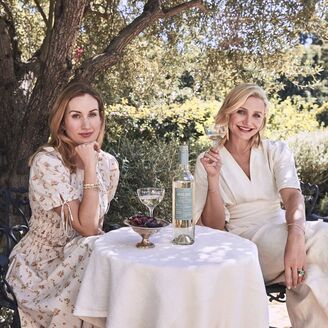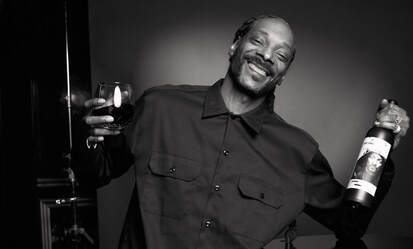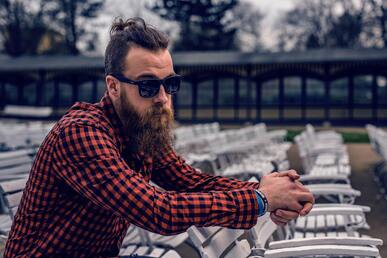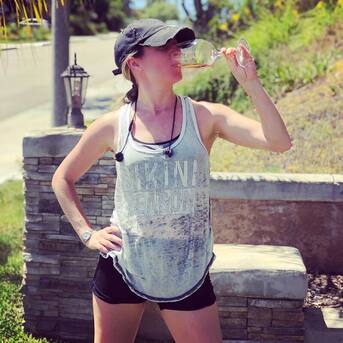 Cameron Diaz & Katherine Power, Aveline Founders, photo credit: Justin Coit Cameron Diaz & Katherine Power, Aveline Founders, photo credit: Justin Coit You’d think some White-Claw-Drinking “influencer” had just come out with a Hitler-themed wine brand with the amount of hate pieces that cropped up after Cameron Diaz & Katherine Power launched their new “clean” wine brand, Avaline. I don’t think I’ve seen this level of vitriol since the Court of Master Sommeliers scandal. From Vinography’s “Clean Wine is a Commercial Scam” to The Guardian’s “The Goopification of wine: why ‘clean wine’ is a scam,” and the widespread supportive sharing of these pieces among the wine industry’s own set of A-listers, it’s clear that people are ANGRY. But WHY? Vinography points out that, “Avaline wines are actually just commercially produced organic wines that have several more additives than many small-production winemakers would consider using.” While this may be true, then why aren’t these small production winemakers banging the gong about their wines? Why are we mad at the ones who saw the marketing opportunity and ran with it, instead of ourselves for not perceiving the potential threat and preempting it, like any good business would? Should we not be asking why the wine industry itself isn’t taking every opportunity possible to fight back against other competitors in the beverage space, and capture the hearts and minds of new wine drinkers, by educating the public about why and how wine in general is the ultimate natural beverage? But then this is the very thing wrong with the wine industry. We would rather dig in on our traditions and pride than actually get out of our comfort zone and innovate. Should we not be asking why the wine industry itself isn’t taking every opportunity possible to fight back against other competitors in the beverage space, and capture the hearts and minds of new wine drinkers, by educating the public about why and how wine in general is the ultimate natural beverage?  Snoop Dogg living his best wine life. Image from DrinksTrade.com Snoop Dogg living his best wine life. Image from DrinksTrade.com Clean wines are derided as nothing more than marketing gimmicks aimed at the “wellness obsessed,” at least so says a well-known wine journalist whom I respect and admire. But I find myself asking, so what? What do you think slapping an augmented reality label on the bottle and partnering with Snoop Dogg is? What do you think Jean-Charles Boisset’s ambassador program is? Is anyone outraged by House Wine partnering with Cheez-Its for the ultimate wine/snack duo? Actually, don’t answer that. I count myself as someone who is wellness…focused. I work out between five and seven days per week. I try my best to eat well, opting for whole grains, fruits and vegetables, and lean protein where possible, but also not shying away from fried chicken, bacon, chocolate, and the occasional fast food indulgence. And I have also dedicated the last 15 years of my life to the study of wine. I take some offense to being dismissed as someone who can’t possibly be serious about wine if I am also serious about taking care of my physical and mental health. I have been very outspoken about the culture of over-consumption and risky behaviors that pervade the wine industry, regularly questioning if we drink too much in this drinks business. To see any brand – whether they’ve earned their stripes or not – bringing to market a product that at least starts to address themes of wellness and transparency is encouraging.
Let’s also not forget that the wine industry created this problem to begin with. By not requiring wines to have ingredients labels on them – regardless of which side of the aisle you’re on when it comes to that battle – our very industry set up a status quo that practically rolled out the red carpet for enterprising winemakers and marketers to fill a need on behalf of consumers asking these questions. And, by not making the effort to educate consumers on why ingredients labeling on wine may or may not be necessary, we have added fuel to this fire. Imagine if the wine industry had actually come together for once to create an entertaining and inclusive large-scale educational campaign to explain, in layman’s terms, things like how many of the additives allowed in wine are often precipitated out and thus no longer really “in” the wine as an ingredient. What if we had taken real steps to show fearful consumers that “Mega Purple” – which may sound horrifying and possibly chemical to the likes of Power and Diaz – is simply super concentrated, high sugar grape juice, even if you as a winemaker choose not to use it? We have missed a huge opportunity here to engage the consumer, and, in the meantime, other entrepreneurs got there first, and actually met inquiring and aspiring wine drinkers where they are.  "Oh I don't drink anything that casts a shadow." Photo by iiii iiii from Pexels "Oh I don't drink anything that casts a shadow." Photo by iiii iiii from Pexels The way I see it, if brands like Avaline, FitVine, Dry Farm Wines, or Scout & Cellar get Chad from the gym who benches 350 lbs, carries around one of those plastic gallon jugs of water wherever he goes, and usually only drinks Michelob Ultra with his other bro-y dudes to check out the wine space, everyone wins. If it gets hipster Sienna who prefers hard Kombucha, single-origin pour-over coffee, and CBD to give the wines a taste, everyone wins. Isn’t the goal to expand the wine market, not shrink it out of exclusivity? I just browsed through a fascinating twitter thread kicked off by VinePair’s Erica Duecy, who asked her network “What is the biggest threat facing the wine industry right now?” So many sharp minds in the biz weighed in, listing things like “Baby Boomer attrition” and “Lack of speed/interest to adapt,” and ”Apathy…on the part of producers who believe (and are encouraged to believe by some media) that they have the right to exist w/o changing”. Jacqueline Coleman’s observations were particularly spot on. She cites “An inability to accept curious consumers who aren’t ‘experts’” as one of the biggest threats right now, noting that, “The industry in general is still very stuck in its ways, & losing potential newbies fast by being judgmental & cranky about every new thing.” PREACH, sister. So WHY are we still seeing hate pieces about every new brand that comes out with something offbeat or, dare I say it, gimmicky? I saw at least one of Erica’s respondents share one of the anti-clean wine stories. It’s belittling to consumers who may be branching out into wine for the first time, as well as to long-time wine lovers who want to try something different, lapel pin or not. Don’t bite the hand that feeds you, I say. Wunderkind sommelier Victoria James made some brilliant points in her piece for Esquire, “Celebrities Could be Making Good Wine. Instead, They’re Making Bad Wine for Good Money.” Her articulate push for celebrities to use their influence for more meaningful pursuits in climate change, social and racial justice, and politics, when creating their wine brand made me openly swoon. She also observed that wine, “Can express a taste of terroir, a somewhat mystical term that describes a sense of a place. The simplicity of this notion is what makes it so sacred.” Perhaps this is where she and I diverge. While I agree with her wholeheartedly on the beauty of the history, traditions, climate, and agriculture that make up a spectacular wine, I believe wine’s sacredness as a whole lies in so many other things: namely, that it is a product of pleasure that has the power to bring people together, and provide a social lubricant that enables conversation, intimacy, and moments of joy. She goes on to note that the wines that celebrities lend their names to, “Seem to avoid exploring this idea of terroir [Don’t tell Alecia Moore/AKA Pink!], and instead fall prey to marketing teams who favor the lifestyle categories of wellness and luxury, as viticulture and vinification methods take a back seat.” I suppose I would ask… but what is wrong with this? Does being a celebrity who wants to create a wine brand necessitate speaking of terroir in order to appeal to the consumer? I have personally watched people glaze over during wine events I have hosted for everyday consumers when I start waxing poetic about this exposition or that soil type. Some of the biggest wine brands out there, regardless of how you feel about them, wouldn’t know terroir if it goosed them at a party. And that’s not a bad thing. Can we not have the Chateau Margauxs and Screaming Eagles and Quintarellis – and celebrate everything extraordinary about those wines – but also have the other stuff too? The stuff for those who just want a glass of something that aligns with their needs, wants and aspirations, whatever, whenever, and why-ever those might be? Context is everything in life and in wine.
Let the terroirists have their dirt and drink it too. But let everyone else who just wants to drink some wine with some friends do so without feeling like they are getting it wrong, even if it’s a bottle of Skinnygirl Pinot Grigio. If this industry is ever going to survive, we are all going to need to be able to play in the same sandbox (sandy loam box?). Who knows, we may even learn a thing about sharing – or terroir – while we’re at it.
8 Comments
|
AuthorDevin Parr writes about wine -- drinking it, making it, life with it, traveling for it and the business of it. She also dabbles a bit in careers and parenting. Archives
January 2021
Categories
All
|
Company |
|


 RSS Feed
RSS Feed